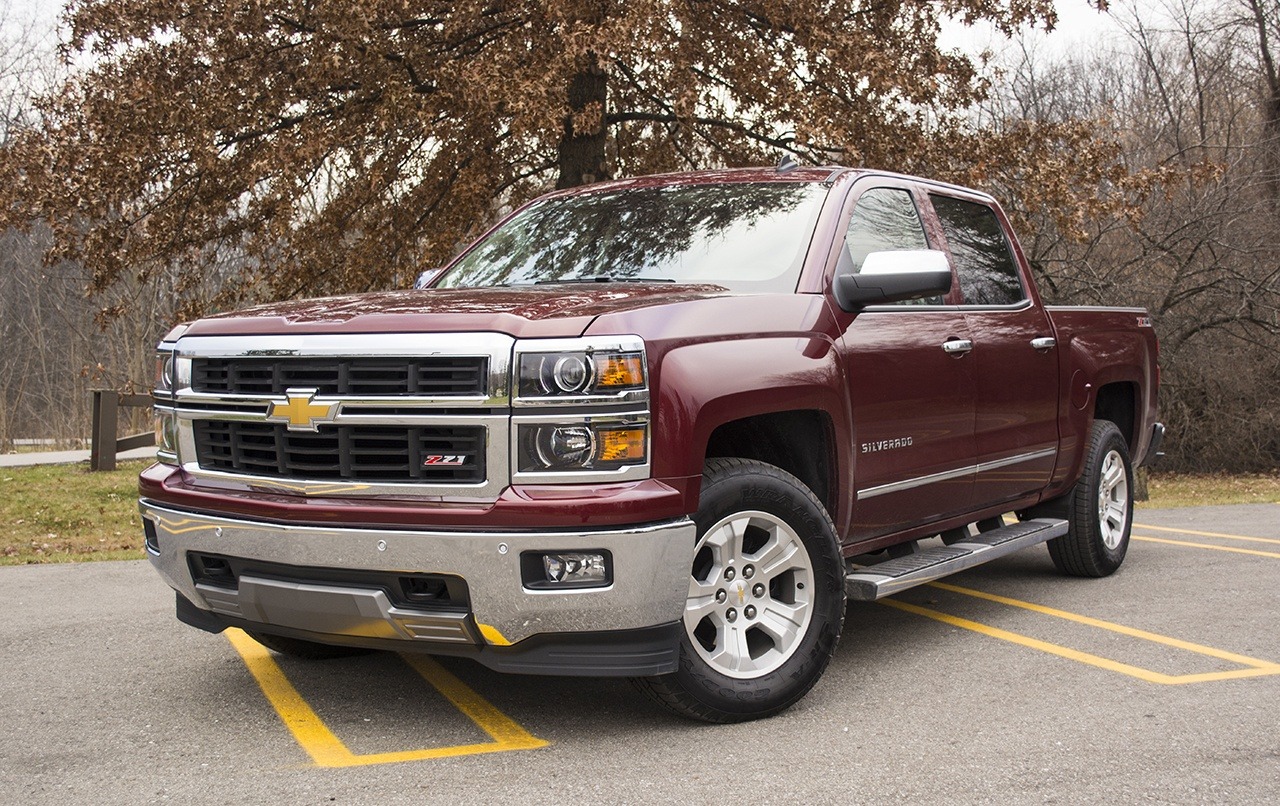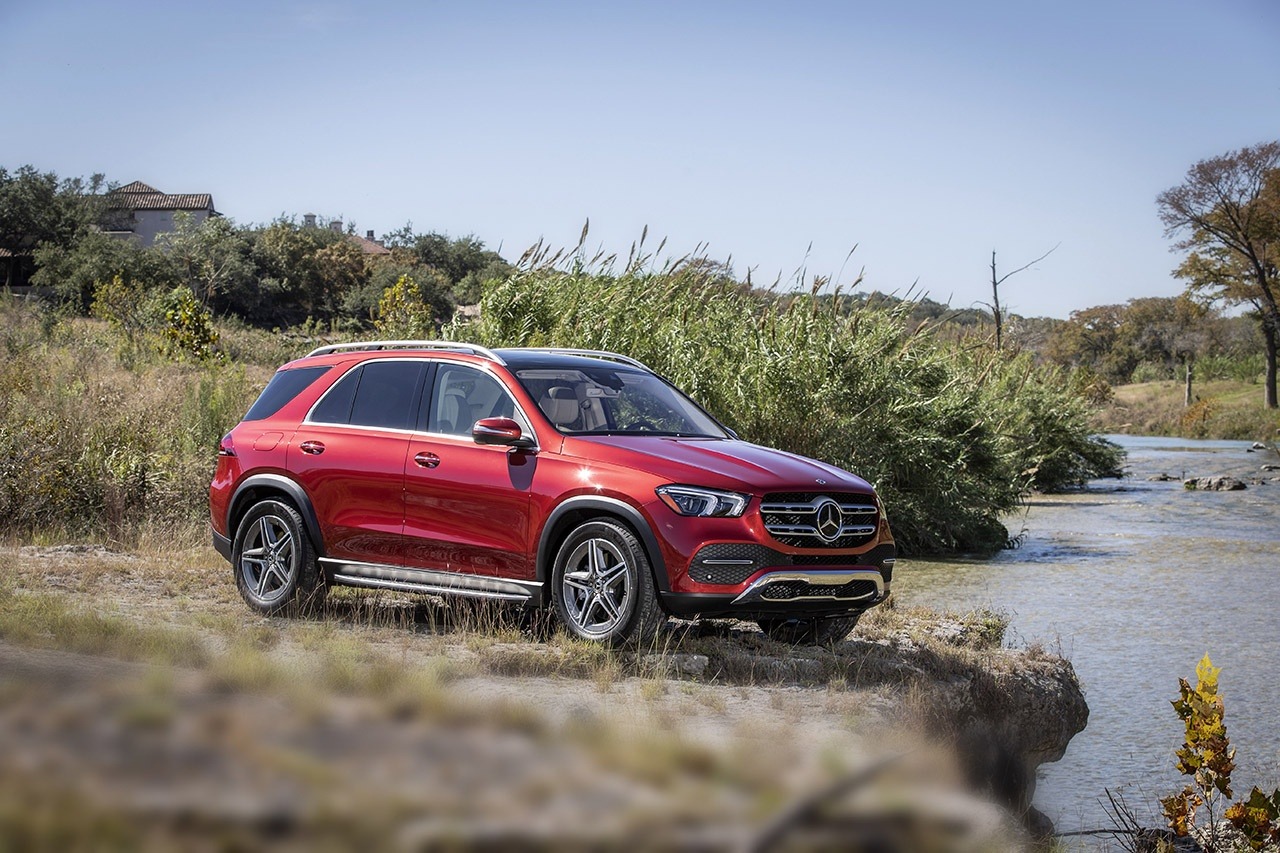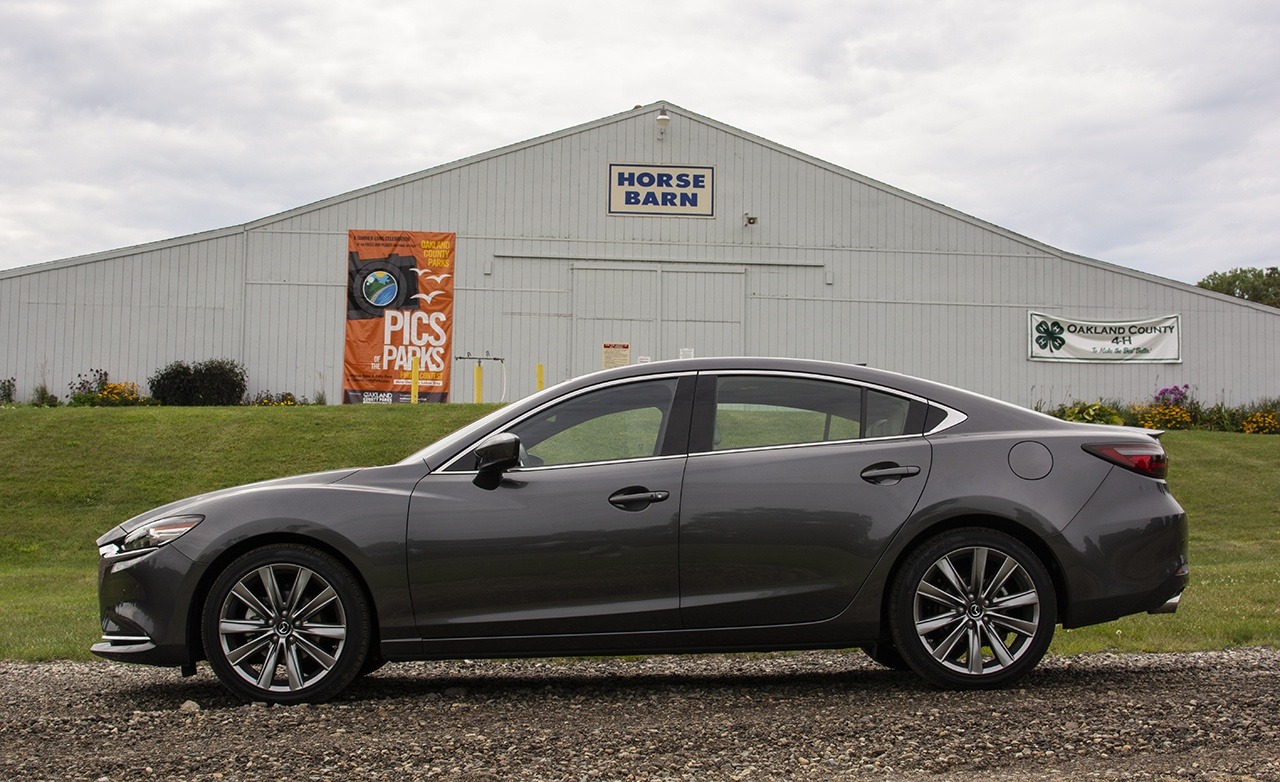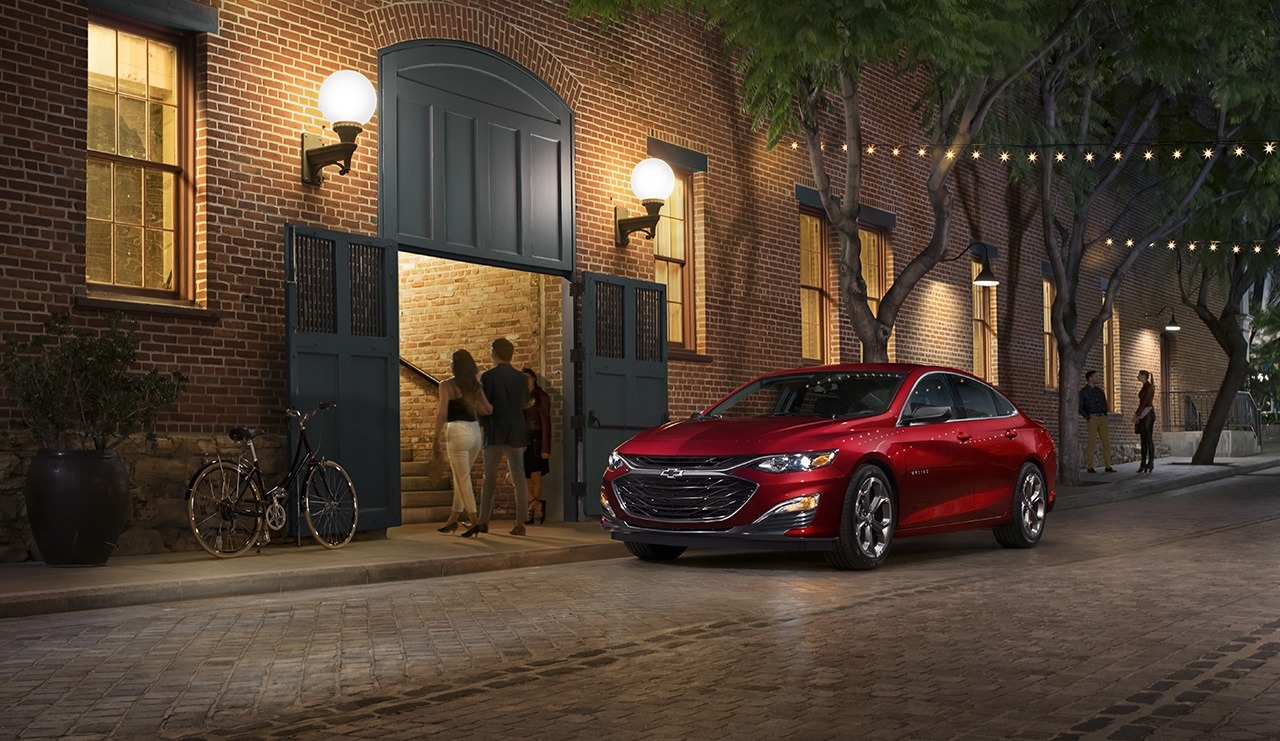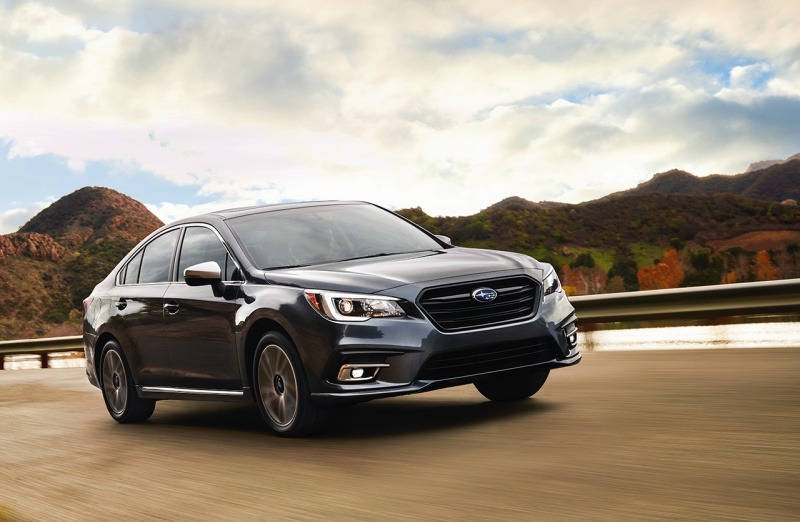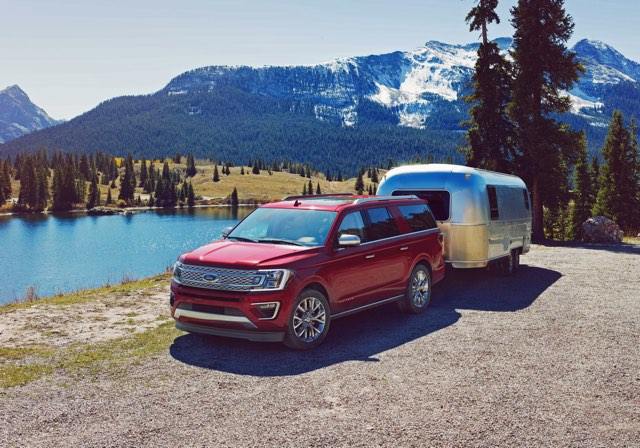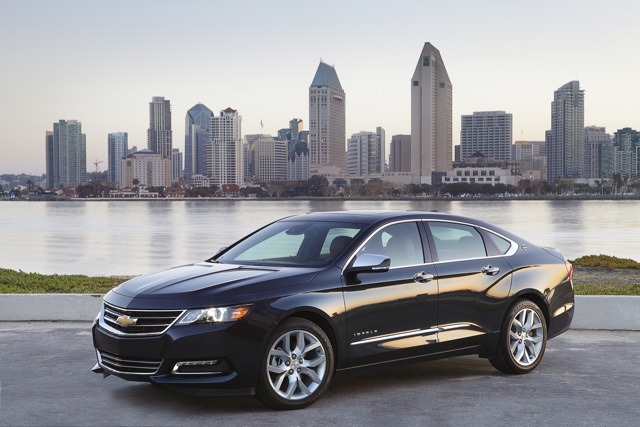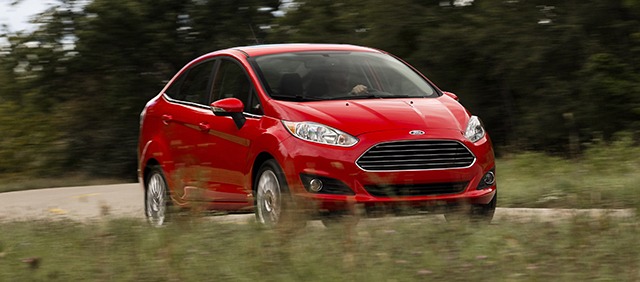Search the Community
Showing results for tags 'cars'.
-
IHS Markit recently published their analysis on how long Americans are holding onto their vehicles. The average according to the firm stands at 11.9 years, the highest amount since they have been tracking this. Also, about one in four vehicles is over sixteen years old. We should note that this data came before COVID-19 started to wreak havoc on the U.S. IHS notes that new cars only made up 6.1 percent of vehicles in operation in 2019, down 0.8 percent when compared to high of 2016. This highlights falling new car sales. But the question lingering over automakers and analysts is will the pandemic cause sales to fall even further as more people hang on to their vehicles. "People are going to keep their vehicles because they don't know if they're going to be driving to work in the future, they don't know if they're going to be driving to work anytime soon even. If you're not accumulating the miles, you might keep that vehicle on the road a little longer," said Todd Campau, associate director of aftermarket solutions at IHS Markit. IHS estimates that new cars in operation could drop to 5% or less in the coming year or so. The firm also expects the age to climb upward in the coming years as owners consider whether or not to spend the hefty amount on a car, when their current vehicle is still quite good. Source: Automotive News (Subscription Required), CNBC
-
IHS Markit recently published their analysis on how long Americans are holding onto their vehicles. The average according to the firm stands at 11.9 years, the highest amount since they have been tracking this. Also, about one in four vehicles is over sixteen years old. We should note that this data came before COVID-19 started to wreak havoc on the U.S. IHS notes that new cars only made up 6.1 percent of vehicles in operation in 2019, down 0.8 percent when compared to high of 2016. This highlights falling new car sales. But the question lingering over automakers and analysts is will the pandemic cause sales to fall even further as more people hang on to their vehicles. "People are going to keep their vehicles because they don't know if they're going to be driving to work in the future, they don't know if they're going to be driving to work anytime soon even. If you're not accumulating the miles, you might keep that vehicle on the road a little longer," said Todd Campau, associate director of aftermarket solutions at IHS Markit. IHS estimates that new cars in operation could drop to 5% or less in the coming year or so. The firm also expects the age to climb upward in the coming years as owners consider whether or not to spend the hefty amount on a car, when their current vehicle is still quite good. Source: Automotive News (Subscription Required), CNBC View full article
-
This should be easy. There are tons of great car movies to choose from - Fast and Furious, Death Race, Smokey and the Bandit, Christine. I'm going to go for an obscure, GenX horror flick a la Spielberg's Dual. The name of the movie, fittingly, is simply "The Car." James Brolin starred as a Western sheriff tasked with protecting his community from a possessed, driverless car. Very cool flick. What's your favorite?
-

Rumorpile: China May Reduce Tariffs On U.S.-Made Cars
William Maley posted an article in Automotive Industry
The Chinese government is considering a proposal to reduce tariffs on U.S.-Built vehicles from the current 40 percent back down to the 15 percent before the trade war broke out between it and the U.S. Sources tell Bloomberg a proposal has been submitted to the cabinet to be reviewed in the coming days. This proposal stems from a trade summit in Buenos Aires where U.S. President Donald Trump and Chinese President Xi Jinping agreed to a 90-day truce on the trade war earlier this month. After the meeting, Trump tweeted out that "China agreed to “reduce and remove” tariffs on imported American-made cars, something China did not confirm at the time." Shares of various automakers including Diamler, Ford, and Tesla rose on the news. The trade war between the U.S. and China has taken a toll on automakers. Both BMW and Dimaler have warned of lower profits as tariffs have forced them to raise prices in China. Others such as Volvo and Ford have made changes to production and vehicle plans. China's Finance Ministry didn't respond to Bloomberg's request for a comment. Source: Bloomberg- 9 comments
-
- automobiles
- cars
- (and 6 more)
-
The Chinese government is considering a proposal to reduce tariffs on U.S.-Built vehicles from the current 40 percent back down to the 15 percent before the trade war broke out between it and the U.S. Sources tell Bloomberg a proposal has been submitted to the cabinet to be reviewed in the coming days. This proposal stems from a trade summit in Buenos Aires where U.S. President Donald Trump and Chinese President Xi Jinping agreed to a 90-day truce on the trade war earlier this month. After the meeting, Trump tweeted out that "China agreed to “reduce and remove” tariffs on imported American-made cars, something China did not confirm at the time." Shares of various automakers including Diamler, Ford, and Tesla rose on the news. The trade war between the U.S. and China has taken a toll on automakers. Both BMW and Dimaler have warned of lower profits as tariffs have forced them to raise prices in China. Others such as Volvo and Ford have made changes to production and vehicle plans. China's Finance Ministry didn't respond to Bloomberg's request for a comment. Source: Bloomberg View full article
- 9 replies
-
- automobiles
- cars
- (and 6 more)
-
Back i n May, the U.S. Commerce Department launched an investigation into car imports to determine the impact of car imports. The investigation falls under Section 232 of the Trade Expansion Act of 1962 which states "whether imports of automobiles, including SUVs, vans and light trucks, and automotive parts into the United States threaten to impair the national security." This could allow the Trump administration to levy tariffs as high as 25 percent on foreign-built vehicles. Yesterday, the Commerce Department submitted their draft report into the investigation. The Trump administration has 90 days to determine whether or not to move forward on various measures such as implementing tariffs if the report concludes that imports are a security threat. But Bloomberg is reporting that the administration is holding off on imposing new tariffs. Two sources tell the publication that top officials are considering revising plans due to the report. The sources also said that the report "would be subject to further changes." President Trump has been using the threat of tariffs as leverage during negotiations with trade partners. Already, Trump has promised not to impose any auto tariffs on Europe while the two work on a new trade deal. But a number of foreign governments and companies have said the tariffs would cause more harm. The National Automobile Dealers Association estimates tariffs would add $2,270 to the cost of U.S.-built vehicles and $6,875 to the cost of imported vehicles. It doesn't help that many in Trump's senior economic team believe slapping tariffs on imported cars is a bad idea. According to a report from Axios yesterday, "about every member of his senior economic team besides Peter Navarro believes this is a terrible idea." View full article
-

U.S. Is Planning To Hold Back On Issuing Car Tariffs
William Maley posted an article in Automotive Industry
Back i n May, the U.S. Commerce Department launched an investigation into car imports to determine the impact of car imports. The investigation falls under Section 232 of the Trade Expansion Act of 1962 which states "whether imports of automobiles, including SUVs, vans and light trucks, and automotive parts into the United States threaten to impair the national security." This could allow the Trump administration to levy tariffs as high as 25 percent on foreign-built vehicles. Yesterday, the Commerce Department submitted their draft report into the investigation. The Trump administration has 90 days to determine whether or not to move forward on various measures such as implementing tariffs if the report concludes that imports are a security threat. But Bloomberg is reporting that the administration is holding off on imposing new tariffs. Two sources tell the publication that top officials are considering revising plans due to the report. The sources also said that the report "would be subject to further changes." President Trump has been using the threat of tariffs as leverage during negotiations with trade partners. Already, Trump has promised not to impose any auto tariffs on Europe while the two work on a new trade deal. But a number of foreign governments and companies have said the tariffs would cause more harm. The National Automobile Dealers Association estimates tariffs would add $2,270 to the cost of U.S.-built vehicles and $6,875 to the cost of imported vehicles. It doesn't help that many in Trump's senior economic team believe slapping tariffs on imported cars is a bad idea. According to a report from Axios yesterday, "about every member of his senior economic team besides Peter Navarro believes this is a terrible idea." -

Chevrolet Still Sees Cars As An Important Part Of Their Lineup
William Maley posted an article in Chevrolet
Chevrolet believes that it gain more market share in subcompacts to full-size sedans as other competitors leave the market, most notably Ford. "It's a pretty big opportunity for us. As other people are making noise about leaving the car business or thrifting back their portfolio, there's still business to be had there. It's just going about the business in a smart fashion," said Steve Majoros, Chevrolet's marketing director for cars and crossovers to Automotive News. While the car market in the U.S. continues to shrink as more buyers go for SUVs and crossovers, it still represents more than four million possible customers and an opportunity for Chevrolet to introduce itself to this group. Plus, compact and midsize segments still representative one in every five vehicles sold. Majoros believes that sales of cars have "hit the floor." "There's still volume to be had there. We've done a nice job about taking a responsible approach to the product. If other competitors are leaving, we're very happy to pick up that business, and we'll certainly do that." Source: Automotive News (Subscription Required) -
Chevrolet believes that it gain more market share in subcompacts to full-size sedans as other competitors leave the market, most notably Ford. "It's a pretty big opportunity for us. As other people are making noise about leaving the car business or thrifting back their portfolio, there's still business to be had there. It's just going about the business in a smart fashion," said Steve Majoros, Chevrolet's marketing director for cars and crossovers to Automotive News. While the car market in the U.S. continues to shrink as more buyers go for SUVs and crossovers, it still represents more than four million possible customers and an opportunity for Chevrolet to introduce itself to this group. Plus, compact and midsize segments still representative one in every five vehicles sold. Majoros believes that sales of cars have "hit the floor." "There's still volume to be had there. We've done a nice job about taking a responsible approach to the product. If other competitors are leaving, we're very happy to pick up that business, and we'll certainly do that." Source: Automotive News (Subscription Required) View full article
-
Ford's announcement of dropping most of their lineup of traditional cars likely caused a number of automakers to consider doing something similar. One automaker that will not be doing this is Subaru. Dominick Infante, Subaru’s national manager of product communications told Motor Trend one of the key reasons they keeping traditional cars is increasing gas prices. “Gas prices are starting to come up now. So a good hedge for better economy is having a sedan,” said Infante. “So we still make the Impreza and the Impreza hatchback. They do get better gas mileage than say a comparable CUV like the Crosstrek so we do sell those so if the market does change that’ll help sales of sedans.” Subaru's entry-level Impreza helps bring first-buyers in and performance models like the WRX/STI and BRZ draw in customers in their late 20s and early 30s. Still, Subaru's car lineup is taking it on the chin. Here are the sales numbers through April, Impreza: 22,287 (Down 16.3% YTD) Legacy: 14,730 (Down 13.9% YTD) WRX/STI: 9,854 (Down 8.2% YTD) BRZ: 1,286 (Down 10.1% YTD) Their crossover lineup is doing slightly better. Again, here are the sales numbers through April, Crosstrek: 45,728 (Up 66.6% YTD) Outback: 58,205 (Up 2% YTD) Forester: 50,783 (Down 9.7% YTD) Source: Motor Trend View full article
-
Ford's announcement of dropping most of their lineup of traditional cars likely caused a number of automakers to consider doing something similar. One automaker that will not be doing this is Subaru. Dominick Infante, Subaru’s national manager of product communications told Motor Trend one of the key reasons they keeping traditional cars is increasing gas prices. “Gas prices are starting to come up now. So a good hedge for better economy is having a sedan,” said Infante. “So we still make the Impreza and the Impreza hatchback. They do get better gas mileage than say a comparable CUV like the Crosstrek so we do sell those so if the market does change that’ll help sales of sedans.” Subaru's entry-level Impreza helps bring first-buyers in and performance models like the WRX/STI and BRZ draw in customers in their late 20s and early 30s. Still, Subaru's car lineup is taking it on the chin. Here are the sales numbers through April, Impreza: 22,287 (Down 16.3% YTD) Legacy: 14,730 (Down 13.9% YTD) WRX/STI: 9,854 (Down 8.2% YTD) BRZ: 1,286 (Down 10.1% YTD) Their crossover lineup is doing slightly better. Again, here are the sales numbers through April, Crosstrek: 45,728 (Up 66.6% YTD) Outback: 58,205 (Up 2% YTD) Forester: 50,783 (Down 9.7% YTD) Source: Motor Trend
-

Millennials Are Buying Cars Due To A Baby Boom
William Maley posted an article in Automotive Industry
The past few years have been tiring if you happen to be a millennial. There has been countless articles talking about how this group are not buying houses or vehicles. Of course, the reason is that millennials don't have the money (saddled with more debt, having entry-level salaries, etc). But that is changing. According to a report from Bloomberg, millennials are beginning to head out to the suburbs, and purchasing houses and cars. The reason? They're having their baby boom. According to data from the Zillow Group, Americans aged from 18 to 34 have become the largest group of home buyers, with almost half living in the suburbs. They're upsizing their vehicles as well to go with their new home. Large SUV sales jumped 11 percent in first half of this year according to Ford Motor Co. Midsize SUVs rose 9 percent and small SUVs jumped 4 percent in the same timeframe. “We do see that demographic group driving larger sport utility sales as they acquire homes, create families and gain some wealth,” said Michelle Krebs, an analyst at car-shopping website Autotrader. “They started with compact sport utilities and now, with families, they’re moving up.” Expect more millennials to follow suit. LMC Automotive estimates that sales of large SUVs will rise 25 percent between now and 2025. “There’s no question people are waiting longer, but people still want to have children. As long as people have children and those children grow and acquire friendships, it requires more space,” said Erich Merkle, Ford’s U.S. sales analyst. Currently, the largest group of buyers for midsize and large SUVs are Gen Xers, but millennials are expected to eclipse them due to there being a large number of them - about 80 million. “There’s going to be an extra 25 million people passing into and through the 35- to 44-year-old demographic over the next 10 to 15 years,” Merkle said. “That’s going to lead to a gradual increase in the growth of large and midsize SUVs that’s already starting to happen.” Source: Bloomberg -
The past few years have been tiring if you happen to be a millennial. There has been countless articles talking about how this group are not buying houses or vehicles. Of course, the reason is that millennials don't have the money (saddled with more debt, having entry-level salaries, etc). But that is changing. According to a report from Bloomberg, millennials are beginning to head out to the suburbs, and purchasing houses and cars. The reason? They're having their baby boom. According to data from the Zillow Group, Americans aged from 18 to 34 have become the largest group of home buyers, with almost half living in the suburbs. They're upsizing their vehicles as well to go with their new home. Large SUV sales jumped 11 percent in first half of this year according to Ford Motor Co. Midsize SUVs rose 9 percent and small SUVs jumped 4 percent in the same timeframe. “We do see that demographic group driving larger sport utility sales as they acquire homes, create families and gain some wealth,” said Michelle Krebs, an analyst at car-shopping website Autotrader. “They started with compact sport utilities and now, with families, they’re moving up.” Expect more millennials to follow suit. LMC Automotive estimates that sales of large SUVs will rise 25 percent between now and 2025. “There’s no question people are waiting longer, but people still want to have children. As long as people have children and those children grow and acquire friendships, it requires more space,” said Erich Merkle, Ford’s U.S. sales analyst. Currently, the largest group of buyers for midsize and large SUVs are Gen Xers, but millennials are expected to eclipse them due to there being a large number of them - about 80 million. “There’s going to be an extra 25 million people passing into and through the 35- to 44-year-old demographic over the next 10 to 15 years,” Merkle said. “That’s going to lead to a gradual increase in the growth of large and midsize SUVs that’s already starting to happen.” Source: Bloomberg View full article
-

Sedan Sales Are Sliding and it Could Get Worse
William Maley posted an article in Automotive Industry
May was a horrible month for automakers as many reported sales drops. Part of this can be attributed sales of cars (especially sedans) imploding. According to Automotive News, the 15 largest automakers all posted lower car sales. Overall car sales dropped 16 percent. "We don't get a lot of ups on cars right now, as far as people even wanting a price on them," said Gary Uftring, president of Uftring Auto Group in Peoria, Ill. "Styling has changed, and what people want to be seen in is a crossover or a sport utility." Case in point, light-truck sales rose 2.4 percent in May. Sedans were the hardest hit for May. Here's a rundown of the big losers, Toyota Camry and Prius saw a decrease of about 7,000 models when compared to sales last May BMW 5-Series, Ford Focus, and Ford Fusion all saw a drop of over 20 percent Worst month of any kind for the Chevrolet Impala, down 54 percent. Barclays Capital analyst Brian Johnson says the U.S. has gone into a 'sedan recession,' and could hurt sales down the road. "Excess supply and weak demand for sedans is likely to yield added price pressures. One trend that may accelerate the sedan recession is weakness in deep subprime credit, which largely supports used car values -- especially for sedans." Source: Automotive News (Subscription Required)- 23 comments
-
- Cars
- Market Share
-
(and 2 more)
Tagged with:
-
May was a horrible month for automakers as many reported sales drops. Part of this can be attributed sales of cars (especially sedans) imploding. According to Automotive News, the 15 largest automakers all posted lower car sales. Overall car sales dropped 16 percent. "We don't get a lot of ups on cars right now, as far as people even wanting a price on them," said Gary Uftring, president of Uftring Auto Group in Peoria, Ill. "Styling has changed, and what people want to be seen in is a crossover or a sport utility." Case in point, light-truck sales rose 2.4 percent in May. Sedans were the hardest hit for May. Here's a rundown of the big losers, Toyota Camry and Prius saw a decrease of about 7,000 models when compared to sales last May BMW 5-Series, Ford Focus, and Ford Fusion all saw a drop of over 20 percent Worst month of any kind for the Chevrolet Impala, down 54 percent. Barclays Capital analyst Brian Johnson says the U.S. has gone into a 'sedan recession,' and could hurt sales down the road. "Excess supply and weak demand for sedans is likely to yield added price pressures. One trend that may accelerate the sedan recession is weakness in deep subprime credit, which largely supports used car values -- especially for sedans." Source: Automotive News (Subscription Required) View full article
- 23 replies
-
- Cars
- Market Share
-
(and 2 more)
Tagged with:
-
Kicking off since I did not see an April Car spotting thread. Was over picking up my Durango as the Trans needed rebuilding. I got 223,000 miles on it before I had to rebuild it. Saw this Cherry of a Buick at the shop.
-
G. David Felt Staff Writer Alternative Energy - www.CheersandGears.com Worst Used Cars Compare.com reviewed the insurance industry reports on auto's, accidents, quality reports and much more to build a 5 point list on used auto's and what NOT to buy. The break down comes as follows: 1) Trade-Ins Dealers DO NOT WANT: Mini Cooper Jaguar S-Type Land Rover Discovery Mazda CX-7 This is due to the high failure rate of the power-trains. 2) Dealers DO NOT WANT brands that are no longer made, unless they are limited production versions, but for sure they do not want the following: PT Cruiser Dodge Grand Caravan SAAB Suzuki Saturn 3) Dealers do not want cars with HIGH COST OF OWNERSHIP: Example given is 2010 Ford Focus with a cost of owner ship in first 5yrs of $27,805. 4) Dealers DO NOT WANT auto's with no title. 5) Dealers DO NOT WANT auto's with Funky smells such as: Gasoline Smell Burning Smell Sweet Smell Mildew Smell Smoke Smell So what do you think? Do you agree with this or not?
-
Saw this story on MSN Auto's this morning. Most Improved cars of the last 10 years. Pretty interesting. http://editorial.autos.msn.com/most-improved-cars-of-the-last-10-years?icid=autos_5852#1 MSN Auto's list the top 3 as follows: Chrsyler 200 Kia Rio Kia Optima This is followed by Hyundia Accent Jeep Grand Cherokee Chevrolet Cruze Chevrolet Impala Dodge Dart Chevrolet Colorado Cadillac CTS Aston Martin Vanquish Tesla Model S Honda Civic Nissan Altima Chevrolet Camero So what do you think are the most improved auto's of the last 10 years?
-
Despite countless studies and reports that say Gen Y (AKA millienals) aren't interested in cars, a new study released this week says this key group are interested in cars. Deloitte LLP, a financial consulting firm published their Global Automotive Consumer Study which showed that Gen Y is very much interested in getting their own vehicle, despite not having the same love affair as their parents and grandparents. "Well over half (61 percent) of Gen Y consumers in the Deloitte report expect to buy or lease a car within the next three years," said Craig Giffi, vice chairman of Deloitte. Giffi went onto say that "almost a quarter (23 percent) expect to purchase or lease in the next 12 months – and a mere 8 percent do not expect to ever purchase or lease a vehicle." The big stumbling block for Gen Y with purchasing a vehicle is cost. 80 percent of the Gen Y surveyed said that cost was a big factor. "Affordability is the mantra for Gen Y consumers who don't already own or lease a vehicle. When asked what purchasing criteria matter most to them, a majority cited cost-related items such as the vehicle's price tag, fuel efficiency and payment options," said Giffi. So what is Gen Y looking for in a vehicle? More than half want technology that entertains them while they are driving and wish that it was easier to customize the technology after a purchase or lease. A majority also believes that they will be driving an alternative engine vehicle within the next five years and that safety tech is a top priority. "While Gen Y may not necessarily scrutinize horsepower, acceleration times or engine size, they do have clear needs, wants and desires, especially when it comes to remaining connected to all of their lifestyle technology while on the road. This is good news for car makers, who already offer – or are bringing to market – many of the features Gen Y consumers most want in a vehicle," said Deloitte's Massa Hasegawa. Source: Deloitte LLP Press Release is on Page 2 Dude, Here's My Car: Gen Y Shows Interest in Vehicle Ownership Deloitte Report - Young drivers want affordable technology-enabled hybrids DETROIT, Jan. 16, 2014 /PRNewswire/ -- Gen Y consumers are showing a clear interest in vehicle ownership and have specific ideas of what they want in a car, according to Craig Giffi, vice chairman, Deloitte LLP, and automotive practice leader. Citing data from a Deloitte report on global mobility, Giffi said that while young consumers view car ownership as less important for mobility than previous generations, they are, nonetheless, excited about affordable, technology-enabled vehicles – especially hybrid electric cars. Deloitte's soon-to-be-released report is based on survey responses from more than 23,000 consumers across 19 countries, including more than 2,000 United States consumers – 677 of whom were from the Gen Y demographic (born between 1977 and 1994). The results indicate that while America's romance with the car does not extend to Gen Y, the nearly 80 million Gen Y consumers in the United States are not giving up on car ownership. "Well over half (61 percent) of Gen Y consumers in the Deloitte report expect to buy or lease a car within the next three years," says Giffi, who adds that "almost a quarter (23 percent) expect to purchase or lease in the next 12 months – and a mere 8 percent do not expect to ever purchase or lease a vehicle." Further, only 29 percent of Gen Y consumers would be willing to give up their personal cars, even as non-traditional mobility options like car-sharing and car-pooling services proliferate. Among Gen Y consumers who do not currently own or lease a vehicle, cost seems to be the main barrier – with most (80 percent) saying it is because they cannot afford it and three quarters citing high operational and maintenance costs. In addition, 67 percent said their lifestyle needs are met by walking or public transportation, while 40 percent said their lifestyle needs are met by car borrowing and car sharing. "Affordability is the mantra for Gen Y consumers who don't already own or lease a vehicle," says Giffi. "When asked what purchasing criteria matter most to them, a majority cited cost-related items such as the vehicle's price tag, fuel efficiency and payment options." So what does Gen Y want in a car? Most Gen Y consumers – whether they currently own a vehicle or not – demonstrate a clear affinity for cars and trucks with alternative powertrains. More than half (59 percent) think they will be driving an alternative engine vehicle five years from now, with more than a quarter (27 percent) naming hybrid electrics as their single most preferred type of alternative engine – far ahead of plug-in hybrids (8 percent), all-battery electric vehicles (7 percent), and fuel-cell vehicles (4 percent). What is more, they would like the government to help defray the higher costs of alternative powertrains, with 58 percent saying they would support government programs that reward consumers for choosing alternative/high-efficiency engines. "Gen Y consumers across the board also want safety technology, especially features that mitigate the risks of distracted driving," says Masa Hasegawa, principal, Deloitte Consulting LLP. "Almost three quarters (72 percent) want technology that recognizes the presence of other vehicles on the road and 63 percent want technology that lets them know when they have exceeded the speed limit." Plus, more than half (56 percent) want technology that entertains them while they are driving and 57 percent wish it were easier to customize a vehicle's technology after purchase or lease. And more than half would like to connect their smart phone to use all its applications from the vehicle's dashboard interface. "While Gen Y may not necessarily scrutinize horsepower, acceleration times or engine size, they do have clear needs, wants and desires, especially when it comes to remaining connected to all of their lifestyle technology while on the road," says Hasegawa. "This is good news for car makers, who already offer – or are bringing to market – many of the features Gen Y consumers most want in a vehicle." View full article
- 86 replies
-

Study: Gen Y Wants Cars... When They Can Afford Them
William Maley posted an article in Automotive Industry
Despite countless studies and reports that say Gen Y (AKA millienals) aren't interested in cars, a new study released this week says this key group are interested in cars. Deloitte LLP, a financial consulting firm published their Global Automotive Consumer Study which showed that Gen Y is very much interested in getting their own vehicle, despite not having the same love affair as their parents and grandparents. "Well over half (61 percent) of Gen Y consumers in the Deloitte report expect to buy or lease a car within the next three years," said Craig Giffi, vice chairman of Deloitte. Giffi went onto say that "almost a quarter (23 percent) expect to purchase or lease in the next 12 months – and a mere 8 percent do not expect to ever purchase or lease a vehicle." The big stumbling block for Gen Y with purchasing a vehicle is cost. 80 percent of the Gen Y surveyed said that cost was a big factor. "Affordability is the mantra for Gen Y consumers who don't already own or lease a vehicle. When asked what purchasing criteria matter most to them, a majority cited cost-related items such as the vehicle's price tag, fuel efficiency and payment options," said Giffi. So what is Gen Y looking for in a vehicle? More than half want technology that entertains them while they are driving and wish that it was easier to customize the technology after a purchase or lease. A majority also believes that they will be driving an alternative engine vehicle within the next five years and that safety tech is a top priority. "While Gen Y may not necessarily scrutinize horsepower, acceleration times or engine size, they do have clear needs, wants and desires, especially when it comes to remaining connected to all of their lifestyle technology while on the road. This is good news for car makers, who already offer – or are bringing to market – many of the features Gen Y consumers most want in a vehicle," said Deloitte's Massa Hasegawa. Source: Deloitte LLP Press Release is on Page 2 Dude, Here's My Car: Gen Y Shows Interest in Vehicle Ownership Deloitte Report - Young drivers want affordable technology-enabled hybrids DETROIT, Jan. 16, 2014 /PRNewswire/ -- Gen Y consumers are showing a clear interest in vehicle ownership and have specific ideas of what they want in a car, according to Craig Giffi, vice chairman, Deloitte LLP, and automotive practice leader. Citing data from a Deloitte report on global mobility, Giffi said that while young consumers view car ownership as less important for mobility than previous generations, they are, nonetheless, excited about affordable, technology-enabled vehicles – especially hybrid electric cars. Deloitte's soon-to-be-released report is based on survey responses from more than 23,000 consumers across 19 countries, including more than 2,000 United States consumers – 677 of whom were from the Gen Y demographic (born between 1977 and 1994). The results indicate that while America's romance with the car does not extend to Gen Y, the nearly 80 million Gen Y consumers in the United States are not giving up on car ownership. "Well over half (61 percent) of Gen Y consumers in the Deloitte report expect to buy or lease a car within the next three years," says Giffi, who adds that "almost a quarter (23 percent) expect to purchase or lease in the next 12 months – and a mere 8 percent do not expect to ever purchase or lease a vehicle." Further, only 29 percent of Gen Y consumers would be willing to give up their personal cars, even as non-traditional mobility options like car-sharing and car-pooling services proliferate. Among Gen Y consumers who do not currently own or lease a vehicle, cost seems to be the main barrier – with most (80 percent) saying it is because they cannot afford it and three quarters citing high operational and maintenance costs. In addition, 67 percent said their lifestyle needs are met by walking or public transportation, while 40 percent said their lifestyle needs are met by car borrowing and car sharing. "Affordability is the mantra for Gen Y consumers who don't already own or lease a vehicle," says Giffi. "When asked what purchasing criteria matter most to them, a majority cited cost-related items such as the vehicle's price tag, fuel efficiency and payment options." So what does Gen Y want in a car? Most Gen Y consumers – whether they currently own a vehicle or not – demonstrate a clear affinity for cars and trucks with alternative powertrains. More than half (59 percent) think they will be driving an alternative engine vehicle five years from now, with more than a quarter (27 percent) naming hybrid electrics as their single most preferred type of alternative engine – far ahead of plug-in hybrids (8 percent), all-battery electric vehicles (7 percent), and fuel-cell vehicles (4 percent). What is more, they would like the government to help defray the higher costs of alternative powertrains, with 58 percent saying they would support government programs that reward consumers for choosing alternative/high-efficiency engines. "Gen Y consumers across the board also want safety technology, especially features that mitigate the risks of distracted driving," says Masa Hasegawa, principal, Deloitte Consulting LLP. "Almost three quarters (72 percent) want technology that recognizes the presence of other vehicles on the road and 63 percent want technology that lets them know when they have exceeded the speed limit." Plus, more than half (56 percent) want technology that entertains them while they are driving and 57 percent wish it were easier to customize a vehicle's technology after purchase or lease. And more than half would like to connect their smart phone to use all its applications from the vehicle's dashboard interface. "While Gen Y may not necessarily scrutinize horsepower, acceleration times or engine size, they do have clear needs, wants and desires, especially when it comes to remaining connected to all of their lifestyle technology while on the road," says Hasegawa. "This is good news for car makers, who already offer – or are bringing to market – many of the features Gen Y consumers most want in a vehicle."- 86 comments
-
So came across this story on Lucra Cars who has built multiple cars for the Fast and Furious movies. He became noticed with the LC470 and now has the L148 that is to go into production in 2014 as a $300K 700HP LS V8 American Muscle car with European driving capabilities. Complete story is found here: http://autos.yahoo.com/blogs/motoramic/inside-one-man-quest-build-america-next-great-182846840.html;_ylt=AgU3y1bhJt1d8RdRsKBIa2omhvZ_;_ylc=X3oDMThzb3I0aW05BF9TAzIxNDY4NjI2MzAEYWN0A3RpdGxlBGN0A3N0YW5kYXJkBGVkAzEEaW50bAN1cwRpdGMDMARscG9zAzIEbWNvZGUDQWdCU2xPUVFFR2UyRUJCL05DQUFRTG9RQUVzdklBQmtlaEFRT1NRZ0FBdTVFQkJSVXc9PQRtaWQDdGQEbXBvcwMxBHBrZwNpZC0zNDM1Mzk0BHBrZ3QDMQRwb3MDNARzZWMDdGQtZmVhBHNsawNUaGlzIGNvdWxkIGJlIEFtZXJpY2EmIzM5O3MgbmV4dCBncmVhdCBzdXBlcmNhcgR0YXIDaHR0cDovL2F1dG9zLnlhaG9vLmNvbQR0ZXN0AwR2ZXJzaW9uA2xlZ28Ed29lAzEyNzk3MDk5;_ylg=X3oDMTE5bXFkMXMyBGludGwDdXMEbGFuZwNlbi11cwRwc3RhaWQDBHBzdGNhdAMEcHQDcG1o The complete Gallery is found here: http://autos.yahoo.com/photos/lucra-l148-supercar-slideshow/lucra-l148-photo-1385403862034.html What are your thoughts on this persons design style? Can he succeed and grow?
-
William Maley Staff Writer - CheersandGears.com August 7, 2013 Yesterday at at the Center for Automotive Research’s Management Briefing Seminars, General Motors' Chief Economist Mustafa Mohatarem told attendees that the reason young people aren't buying cars because they're not interested. It's more to do with economic reasons. Mohatarem downplayed the reason that young kids are more interested in the internet and what's the latest hot thing in tech, and pushed the rising costs of cars, repairs, and insurance as some of the reasons why young people aren't buying vehicles. “I don’t see any evidence that the young people are losing interest in cars," Mohatarem said. He says the biggest problem facing young people buying cars is they are having a challenging time finding jobs. Also, high student loan debt are causing many to skip buying a car. “Buying a car is less attainable for the young, but that quickly changes as they get older," he said. Source: The Detroit News William Maley is a staff writer for Cheers & Gears. He can be reached at [email protected] or you can follow him on twitter at @realmudmonster.
- 30 comments
-
- Automobiles
- Cars
-
(and 4 more)
Tagged with:
-
William Maley Staff Writer - CheersandGears.com August 7, 2013 Yesterday at at the Center for Automotive Research’s Management Briefing Seminars, General Motors' Chief Economist Mustafa Mohatarem told attendees that the reason young people aren't buying cars because they're not interested. It's more to do with economic reasons. Mohatarem downplayed the reason that young kids are more interested in the internet and what's the latest hot thing in tech, and pushed the rising costs of cars, repairs, and insurance as some of the reasons why young people aren't buying vehicles. “I don’t see any evidence that the young people are losing interest in cars," Mohatarem said. He says the biggest problem facing young people buying cars is they are having a challenging time finding jobs. Also, high student loan debt are causing many to skip buying a car. “Buying a car is less attainable for the young, but that quickly changes as they get older," he said. Source: The Detroit News William Maley is a staff writer for Cheers & Gears. He can be reached at [email protected] or you can follow him on twitter at @realmudmonster. View full article
- 30 replies
-
- Automobiles
- Cars
-
(and 4 more)
Tagged with:


